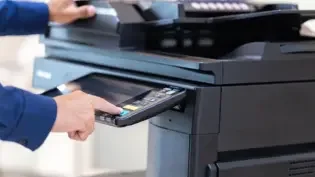
If you’re just getting into a business, perhaps your first foray into entrepreneurial territory at all, you’ll probably hear the words “merchant cash advance” at some point along the way. Often called MCAs, merchant cash advances play a vital role in the development of many companies, particularly startups.
 Author: Jonathan Morris is a writer and business adviser with a specialty in startup management. He writes with the business loan specialists at First American Merchant.
Author: Jonathan Morris is a writer and business adviser with a specialty in startup management. He writes with the business loan specialists at First American Merchant.
So what is a merchant cash advance? And who should consider one?
How an MCA Works
An MCA is a loan alternative, used to bring an influx of cash into a business quickly. They fall into the category of “receivables financing,” meaning a factor (commercial service provider) provides an advance on its purchase of future invoices. Essentially, an MCA provider is purchasing the future sales that a business will transact.
Generally, MCAs have no set date of receivable delivery. Instead, the MCA provider will usually gain access to a company’s card swipe system directly through the card company and take a percentage of daily earnings straight out of the transactions. This means that there aren’t payments to get behind on— the only way to repay the advance more quickly is to focus on the success of the business.
MCAs vs Traditional Bank Loans
Traditional bank loans tend to take a long time to apply for and process. A definite advantage of an MCA is its expediency. The trade-off is that traditional bank loans are often less expensive than MCAs, despite being more long term. Fulfilling an MCA agreement quickly or slowly is completely dependent on how well a business is doing.
Another difference between MCAs and bank loans is that MCAs circumvent many of the credit score problems that entrepreneurs may face. Because they aren’t loans and operate outside of the banking industry, MCAs aren’t subject to the same regulations concerning loan qualifications. This is a pro when it comes to getting a source of outside funding without having a high credit score, but less regulation also allows for the higher rates of compensation that MCAs require, often 10–20% of the advance amount. This percentage is extracted over time so as not to put an insupportable burden on the business.
Additionally, small business loans require tax documentation whereas MCAs don’t require a tax return to be filed. MCAs don’t require credit reporting or collateral, usually just an overview of finances and/or a statement showing monthly earnings.
Who should consider an MCA?
Entrepreneurs who need an extra push of funding, particularly those that are breaking into a new industry, are usually the top MCA users. Small business owners who have confidence in their business model and a strong understanding of their monthly expenses can do quite well with MCAs, though there is an amount of risk involved if the market experiences downturn.
Business owners in emerging markets are also good candidates for MCAs. If a startup has a short window in which to dominate a new market, MCAs may allow for a faster opening. For example, the vapor e-cigarette industry has seen rapid growth coinciding with increasingly stringent smoking laws, so new e-cigarette companies have been popping up, flooding the market and putting sellers into a race to get established. An e-cigarette seller might require a quick infusion of funding to take advantage of a newly booming industry.
Alternatively, if a business is doing well but, for whatever reason, finds itself tight on cash, its owners might look into an MCA as a patch over a rough spot of financial danger. These situations may include inclement weather, illnesses, or unexpected downturn.
In short, a merchant cash advance is a way for businesses to attain extra financing quickly and without applying for a loan. Consult a financial advisor to determine whether it’s the right move for your business.
 Author: Jonathan Morris is a writer and business adviser with a specialty in startup management. He writes with the business loan specialists at First American Merchant.
Author: Jonathan Morris is a writer and business adviser with a specialty in startup management. He writes with the business loan specialists at First American Merchant.
Published: March 21, 2014
3997 Views
3997 Views














